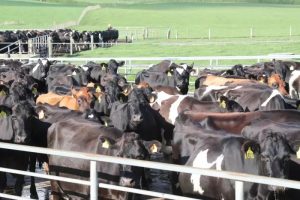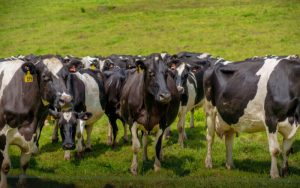
They are preparing in advance as best as they can to reduce the risk of entire teams falling ill when the Covid-19 variant takes hold.
Social distancing measures include workers taking on specific roles to prevent contact and farm owners keeping their distance from managers in the event they get called in to do a shift in the dairy shed.
Federated Farmers Dairy chairman Wayne Langford said small and large teams were both vulnerable and could not afford to lose workers as farmers were already thousands of employees short because of Covid 19.
Farmers needed to be aware of how difficult it was going to be as the industry was “drastically” short of staff. No farmer could afford to have their whole team sick and cows needing to be milked, he said.
He had just visited his neighbour to learn how to milk cows in his shed, so he could provide cover in the event he was laid low by the virus.
“We are riding the start of a wave, but when that wave comes in we will have a month of everyone chipping in because it’s going to sweep in. My advice to farmers is be practical about it, but take it seriously. This is going to come and it’s not an ‘if’ but a ‘when’ issue.”
Mr Langford said farmers were creating team bubbles among shift workers to reduce contact.
“That’s a bit hard for a team of six, but they might have one milking the cows consistently and one moving the cows around to try and isolate them with as little contact as possible.”
Smaller communities have the disadvantage of having fewer people, with no back-up in vet clinics or other services.
The lack of migrant workers has contributed to the labour shortage with migrant wages rising about 20%.
Mr Langford said Government restrictions on who was entering the country was causing labour costs to increase.
He said workers promised entry had been unable to get in because there were not enough MIQ beds.
Mr Langford said he had heard of farmers having to hire non-vaccinated staff because of the lack of workers.
“There’s definitely an anti-mandate [following on dairy farms] and the odd anti-vaxxer, but no more than the average population and that’s being managed in different ways.”
Some vet clinics were insisting that anyone not vaccinated on farms remain at home when they visited, and were charging extra if they needed to bring another staff member.
tim.cronshaw@alliedpress.co.nz
























